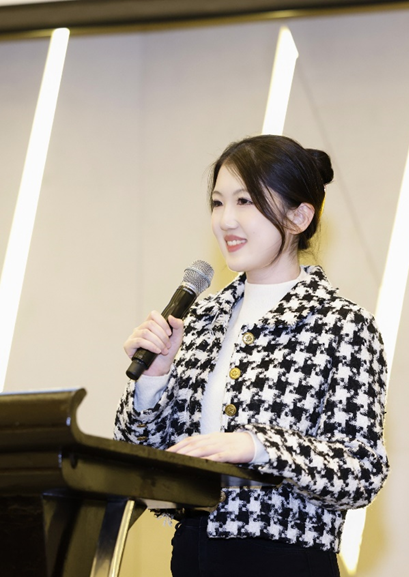
| Dr. Wu Wenhao 吴文昊 |
Email: wuwenhao0330@gmail.com
Research focus: climate change perception, climate change adaptation, urban resilience, sustainable development goals, sustainability transformation
Accredited: Level 5 WeValue Full Analyst |
Role in WeValue team |
Wu Wenhao joined SBERG in Fudan University in 2020. During her PhD, she focused on integrating theoretical frameworks with practical applications to promote sustainable development. She conducted research on climate change perception and urban resilience, exploring the social dimensions of urban resilience and sustainable development. She participated in several international collaborative projects within the group, helping with research design, data collection and analysis, and paper revision. She received training in the group's innovation shared value-based approach – WeValue InSitu, and have extensive experience in organizing workshops and conducting interviews.
|
Profile |
She obtained her PHD degree from Department of Environment Science and Engineering in Fudan University. She holds a Master Degree in Environmental Science (2017-2020) and a B.A Degree in Environmental Science (2013-2017) in Northeastern University.
Wenhao’s research interest lies in urban studies. She chose “urban resilience” as the starting point to explore the complex, adaptive social-ecological systems – urban areas. Urban resilience is a complex topic that spans multiple disciplines, which enables Wenhao to adopt an integrated and transdisciplinary approach. She utilized the WeValue InSitu approach to study the human/social dimensions of urban resilience, and then centered on these findings, integrating them with other dimensions to provide a comprehensive human-centered picture of urban resilience. Through the lens of shared values, she solved two major problems: capturing and establishing the human dimensions of urban resilience—specifically, she identified “Desirable States”; and integrating the human dimensions with other dimensions of urban resilience by combining her findings with systematic dynamics modeling(SD modeling) and agent-based modeling (ABM). She aims to always place people at the center when conducting urban research, contributing her efforts toward building resilient and sustainable cities.
|
Links |
ResearchGate https://www.researchgate.net/profile/Wu-Wenhao-2
|
Related Publications |
Wu, W., Huang, Y., Fath, B. D., Schwarzfurtner-Lutnik, K., & Harder, M. K. (2024). Using desirable urban states to understand key linkages between resilience subsystems. Journal of Cleaner Production, 436, 140678.
Huang, Y., Wu, W., Xue, Y., & Harder, M. K. (2022). Perceptions of climate change impacts on city life in Shanghai: through the lens of shared values. Cleaner Production Letters, 3, 100018.
|
Other Publications |
Bonatz, N., Guo, R., Wu, W., & Liu, L. (2018). A comparative study of the interlinkages between energypoverty and low carbon development in China and Germany by developing an energy poverty index. Energy and Buildings, 183, 817-831.
Guo, R., Shao, G., Wu, W. (2023). Analyzing carbon source-sink nexus for green and sustainable transition at the local scale. Water-Energy Nexus, 6, 6-12
PhD thesis: Incorporating human dimensions in urban resilience research via values-based Desirable States(supervised by Prof.Marie, Fudan University) |


